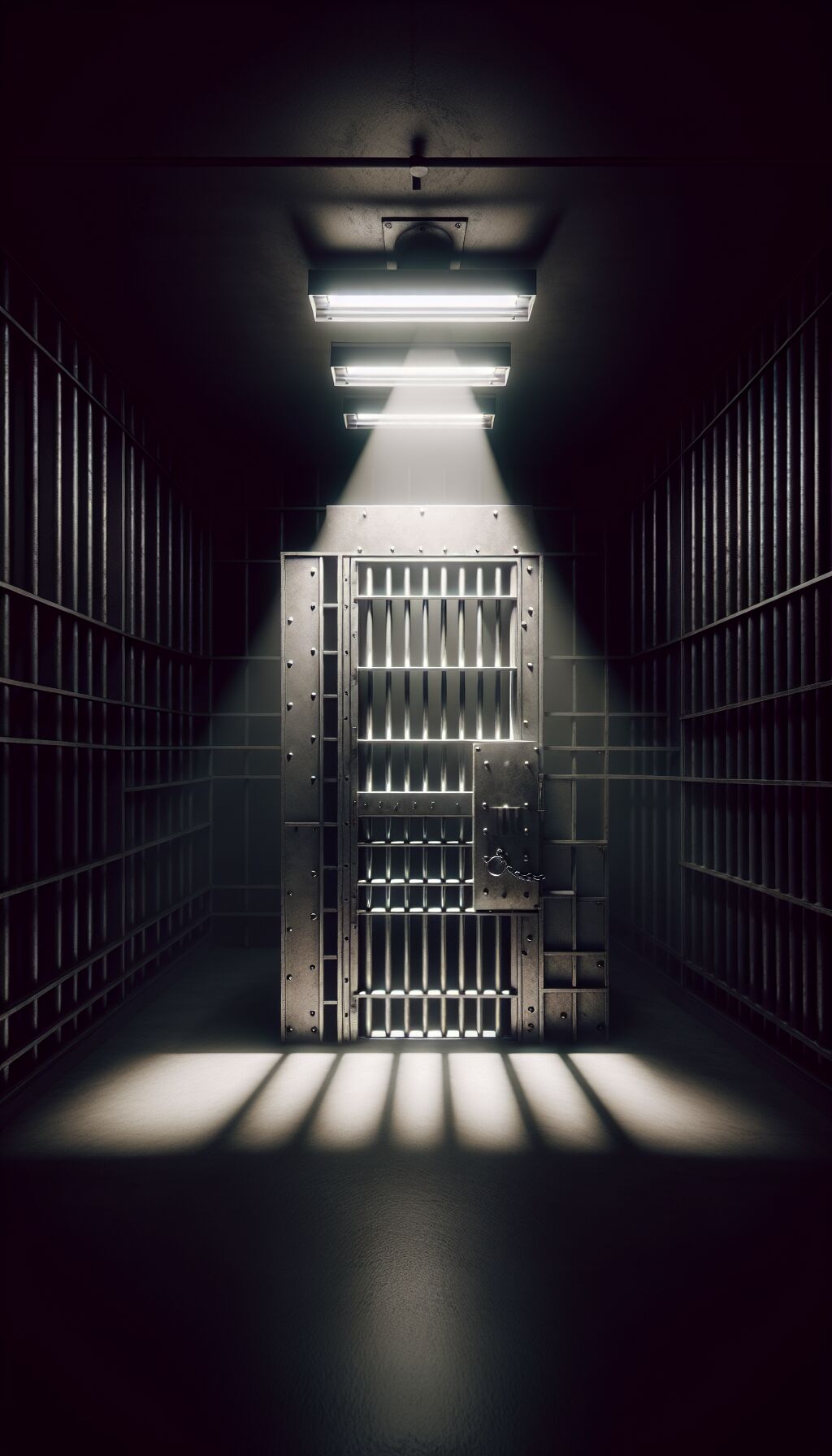The ACLU Raises Alarm Over ICE’s Planned Expansion of Detention Facilities
The American Civil Liberties Union (ACLU) has voiced serious concerns regarding plans by Immigration and Customs Enforcement (ICE) to expand its network of migrant detention facilities as the Trump administration prepares to take office. This information comes in the wake of a report highlighting ICE’s intentions to significantly scale up its operations, including a potentially historic deportation effort.
A Promised Large-Scale Deportation Operation
President-elect Trump has announced his commitment to implementing the largest deportation operation in U.S. history. As part of this ambitious plan, ICE is expected to utilize its detention facilities aggressively, which has prompted alarm from immigration advocates. According to ACLU reports, the surge in detentions is poised to rise from approximately 37,000 individuals currently held daily to an estimated 100,000 individuals under the new administration’s policies.
ICE’s Dependence on External Facilities
While ICE operates five detention facilities directly, the agency heavily relies on a network of other organizations for additional custody space. This includes partnerships with non-profit entities and agreements with private prison corporations. Such arrangements have raised concerns regarding oversight and the conditions within these facilities, particularly amidst claims of inadequate treatment and safety for detainees.
Legal Actions Seeking Transparency
In a bid for transparency, the ACLU initiated a Freedom of Information Act (FOIA) lawsuit against ICE in September. The organization sought information on the potential expansion of migrant detention facilities nationwide. Recent documents obtained by the ACLU reveal that facilities in six states have responded to ICE’s inquiries about potential expansions, including sites in Texas, California, Washington, Illinois, Nevada, and Utah.
The Proposed Facilities in Texas
Within Texas, particularly in the Rio Grande Valley, several facilities are under consideration for expansion. These include the Willacy County Jail in Raymondville, operated by the GEO Group, the Brooks County Detention Facility in Falfurrias, the Coastal Bend Detention Center in Robstown, and the East Hidalgo Detention Center in La Villa. Each of these facilities has faced scrutiny for their treatment of detainees and the conditions experienced within their confines.
Concerns from the ACLU
Eunice Cho, a senior attorney at the ACLU, emphasized the necessity for public awareness concerning ICE’s forthcoming strategies. “It’s vital for the American public to understand what ICE intends to do, both in enforcement and in the detention of individuals from our immigrant communities,” Cho stated. This sentiment reflects broader worries among immigrant advocates regarding the potential consequences of implementing such a significant expansion of detention capacity.
Past Controversies Surrounding ICE Facilities
One particularly contentious facility, the South Texas Family Residential Center in Dilley, Texas, previously operated by the GEO Group and CoreCivic, was shuttered last year. However, reports indicate that CoreCivic is receptive to reopening the facility, triggering further anxieties among immigrant advocacy groups. These organizations have long cited systemic issues, including allegations of mistreatment and overcrowding at such facilities.
Voices from Advocates
“We have serious concerns about expanding immigration detention in South Texas,” Cho reiterated. She highlighted the troubling history of violations and abusive conditions in many of these facilities. The ACLU’s concerns extend beyond mere capacity; they encompass the fundamental issues of humane treatment and the rights of those in ICE’s custody.
Pending Clarity on Deportation Plans
The specifics of Trump’s deportation strategy remain somewhat vague. However, both he and his designated “Border Czar,” Tom Homan, have indicated a focus on targeting criminal migrants for deportation. The auspicious appointment of hardliner Kristi Noem, Governor of South Dakota, to lead the Department of Homeland Security (DHS) further signals an intent to fortify enforcement measures.
The Future of Family Detention
Under the Trump administration, the concept of family detention centers for migrants has re-emerged as a topic of discussion. Homan has stated that such facilities are “on the table,” reigniting debates that had calmed following the closure of several ice family detention centers in 2021 under President Biden’s leadership, which had previously encompassed approximately 3,000 beds.
The Need for Accountability
As the ACLU continues to push for accountability regarding ICE’s practices and plans, the organization remains focused on obtaining essential information about what future detentions might entail. Cho remarked, “We are concerned, of course, with the potential growth of the immigration detention system.” Such statements underline the critical need for vigilance and advocacy to protect immigrant rights as U.S. policies shift in a more enforcement-oriented direction.
Community Reactions and Next Steps
The proposed expansion of ICE’s detention facilities has incited mixed reactions from the public and advocacy groups. Many community members are calling for greater transparency, humane treatment of immigrants, and the protection of civil liberties amidst an evolving immigration landscape. The coming weeks will be crucial for determining how these plans will unfold and how various stakeholders will respond to increased enforcement protocols.
As the Trump administration sets its policies into motion, both the ACLU and other organizations remain committed to following the developments closely and maintaining pressure for humane immigration practices. The coming months promise to be pivotal in shaping the future of immigration enforcement in the United States.












